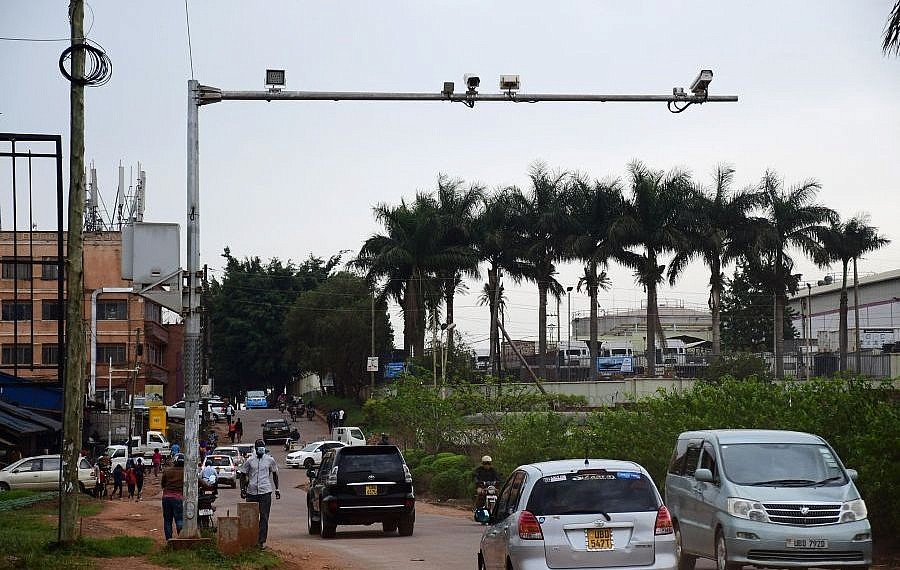The newly rolled out express traffic fine scheme utilising automated technology which went live on Friday has sparked a feeling of unease among motorists, especially in Kampala.
With the new system, cameras capture vehicle number plates and automatically detects traffic violations such as speeding or running red lights, and instantly sends a fine to the driver’s phone number.
This is coupled with the implementation of the new speeding fines and limits in the country.
For example, the speed limits were lowered to a mandatory 30 km/h limit in most high density areas.
This means one will be fined Shs200,000 for exceeding limits by 10–30km/h and Shs600,000 for going beyond that.
On the Northern Bypass, a multi-lane highway originally marked with a 70km/h speed limit, it was lowered to 50km/h and exceeding it means you will have to cough shs600,000 in fines.
The offender has a period of 72 hours to pay the fine or else it will double.
However, on Friday, government rolled out the automated digital system which means offenders will now unknowingly be captured by CCTV cameras on the road .
This has created anxiety for boda boda riders weaving through traffic , long-distance truck drivers and taxi operators trying to beat time, and many are now constantly looking over their shoulders afraid that any wrong move could attract a penalty fine.
John Ssekamatte, a taxi driver operating along the Kampala- Jinja highway, said they’re driving in fear adding that the new system has changed the driving experience dramatically.
“We are living in fear. You can be penalized for something as simple as stopping slightly beyond a zebra crossing. Sometimes the signs are not even visible, but you are fined anyway,” he said.
Ssekamatte is not alone.
Several drivers interviewed by our sources, echoed similar sentiments many of them complaining about what they describe as “sudden enforcement” in a system that has long tolerated indiscipline on the roads.
“They should at least have waited and educate us on how this system works before rolling it out. Rolling it out now is sudden. I fear for myself and many other drivers who unknowingly might be caught on the wrong side of the law,” Juma Ssali, a driver at Mpigi Stage in the new taxi park said.
Other motorists say the fines are illogical.
“What informed the decision to increase the fines but also the decision to say one has to pay the fine in 72 hours is illogical. Imagine a boda boda rider is fined shs600,000 for speeding above 70km/hr and fails to pay the fine in three days! This means they will now be required to pay shs900,000 yet some of the motorcycles we ride are jalopies which cost less than shs2 million. So I would be required to pay a fine almost equal to the cost of my jalopy,” Henry Mukiibi, a boda boda said.
Police however, recently clarified that the newly introduced Electronic Penalty System (EPS) auto system is not intended to punish motorists, but rather to foster a culture of responsibility and compliance on Uganda’s roads.
Michael Kananura, the spokesperson for the Directorate of Traffic and Road Safety, explained that the digital enforcement initiative is part of a broader strategy to reduce road crashes, save lives, and enhance safety for all road users.
“The EPS Auto system is not designed to punish, but to promote a culture of responsibility and compliance on our roads,” Kananura stated.
“Every life matters. Through digital enforcement, we aim to reduce crashes, save lives and enhance road safety,” he added.
According to the Uganda Police Annual Crime Report 2024, an average of 14 people die every day in road crashes, with reckless driving cited as the leading cause.
Despite the system’s good intentions, critics argue that the implementation was rushed and poorly communicated.
Many drivers say they were never properly sensitized about which offenses carry penalties and how the payment system works.
Sarah Nankya, a private car owner in Kampala, emphasized the need for adequate time and thorough sensitization before implementing the penalties.
She also called for open dialogue between law enforcers, policymakers, and drivers to review and possibly revise the existing penalty structure.




